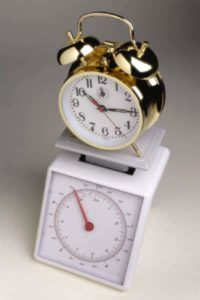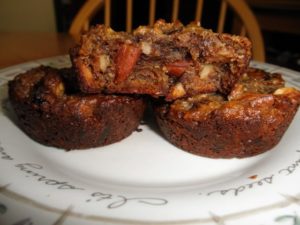 Lisa writes: “I work fairly late, getting home at 9 pm most evenings. I usually squeeze in a salad in between clients around 5:30-6 pm. By the time I get home I’m usually hungry again. I’m always searching for healthy things to eat at that time, so I don’t grab a pint of Ben and Jerry’s from the freezer. Can you offer any suggestions?”
Lisa writes: “I work fairly late, getting home at 9 pm most evenings. I usually squeeze in a salad in between clients around 5:30-6 pm. By the time I get home I’m usually hungry again. I’m always searching for healthy things to eat at that time, so I don’t grab a pint of Ben and Jerry’s from the freezer. Can you offer any suggestions?”
I am a bit of an expert in late night snacking–even though I know that runs contrary to conventional nutritional wisdom. There is some research suggesting that eating more of your calories earlier in the day can help with weight loss. But it’s not the same for everyone. I’ve found that as long as my total intake over the course of the day isn’t excessive, having a late night snack doesn’t seem to sabotage my efforts. Your mileage may vary.
See also: Does it Matter What Time you Eat?
At the same time, you don’t want to go to bed with a stomach full of heavy food or all jazzed up on sugar. Here are four of my favorite bedtime snacks. Continue reading “Best Bedtime Snacks”





 I make a batch of these almost every weekend to get us through the week. They are so much yummier than packaged energy bars! Let them cool completely before removing them from the muffin tin. They’re a little crumbly when they’re warm.
I make a batch of these almost every weekend to get us through the week. They are so much yummier than packaged energy bars! Let them cool completely before removing them from the muffin tin. They’re a little crumbly when they’re warm.